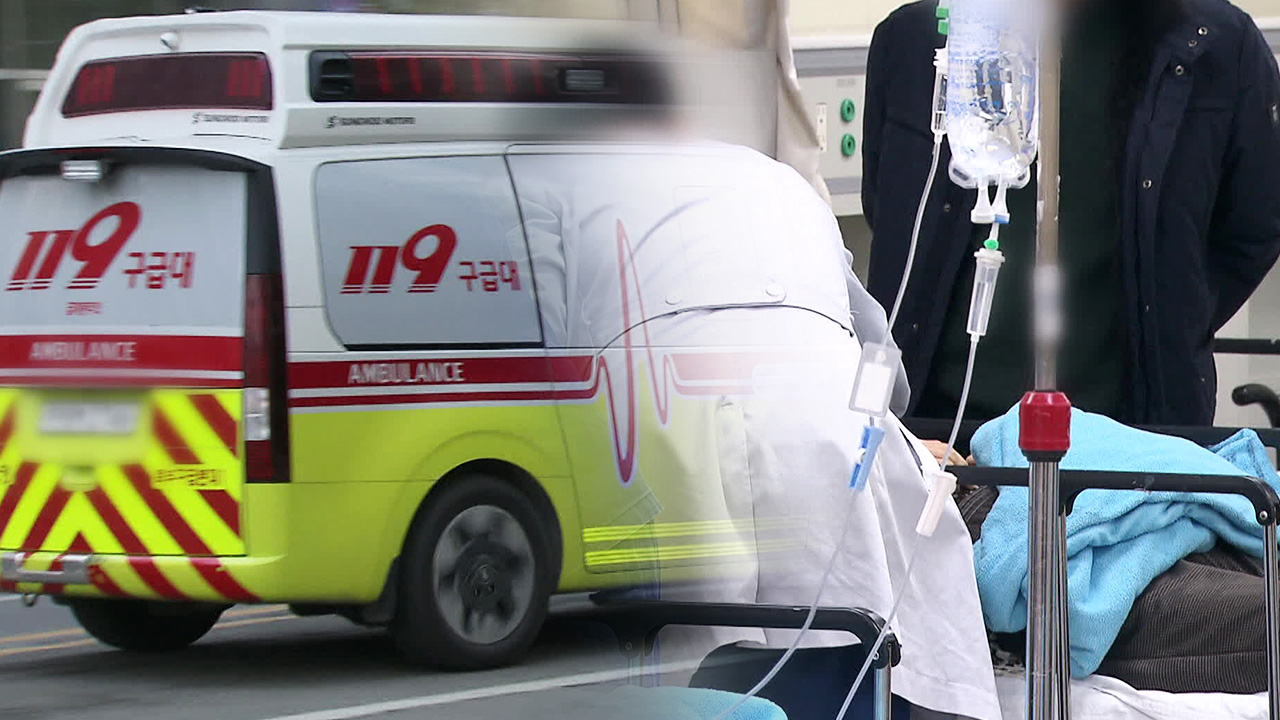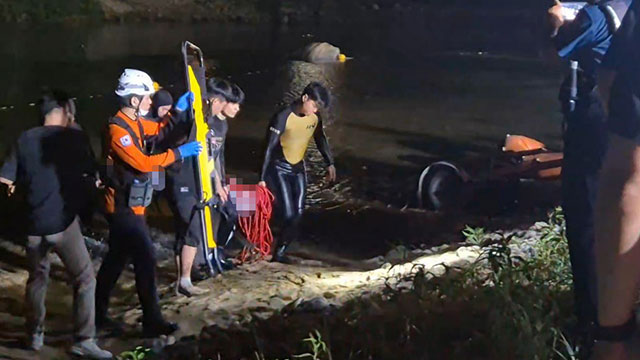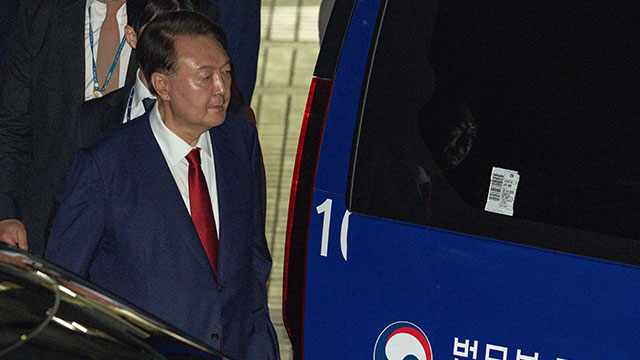Teen dies after hospital transfers; Court rules refusal of emergency medical care
입력 2024.11.25 (00:10)
읽어주기 기능은 크롬기반의
브라우저에서만 사용하실 수 있습니다.
[Anchor]
A teenager who fell from a building died after being transferred between hospitals in an ambulance.
The government has imposed penalties such as subsidy cuts on the hospitals involved, citing emergency medical refusal.
However, one of the hospitals has filed a lawsuit, claiming it was not a case of medical refusal.
Which side did the court favor?
Kim Tae-hoon reports.
[Report]
In March 2023, a report was received about a teenage girl who had fallen, prompting 119 rescue workers to respond urgently.
The first hospital contacted by the ambulance was Daegu Catholic University Hospital, but the hospital refused to accept the patient.
The reason given was the absence of neurosurgery medical staff.
The woman tragically died after being transferred between several hospitals for over two hours.
The Ministry of Health and Welfare conducted an investigation into the incident for over a month and imposed administrative penalties, including subsidy cuts, on four hospitals, including Daegu Catholic University Hospital.
[Ministry of Health and Welfare official/April 2023: "When they requested trauma treatment as a priority, the hospital should have checked everything regarding trauma treatment."]
In response, the hospital filed a lawsuit, arguing that "the six-month suspension of subsidies is an excessive penalty," claiming that they merely informed that all neurosurgeons were unavailable and recommended another hospital, thus asserting it was not a case of emergency medical refusal.
However, the court sided with the Ministry and upheld the subsidy cut.
The Seoul Administrative Court stated, "The hospital's actions at the time clearly constitute emergency medical refusal and evasion," ruling in favor of the Ministry.
The court emphasized that the hospital should have at least conducted a basic examination to determine whether the patient was an emergency case.
As medical gaps continue to widen and the so-called 'emergency room runaround' persists, the impact of this ruling on the medical field is being closely watched.
This is KBS News, Kim Tae-hoon.
A teenager who fell from a building died after being transferred between hospitals in an ambulance.
The government has imposed penalties such as subsidy cuts on the hospitals involved, citing emergency medical refusal.
However, one of the hospitals has filed a lawsuit, claiming it was not a case of medical refusal.
Which side did the court favor?
Kim Tae-hoon reports.
[Report]
In March 2023, a report was received about a teenage girl who had fallen, prompting 119 rescue workers to respond urgently.
The first hospital contacted by the ambulance was Daegu Catholic University Hospital, but the hospital refused to accept the patient.
The reason given was the absence of neurosurgery medical staff.
The woman tragically died after being transferred between several hospitals for over two hours.
The Ministry of Health and Welfare conducted an investigation into the incident for over a month and imposed administrative penalties, including subsidy cuts, on four hospitals, including Daegu Catholic University Hospital.
[Ministry of Health and Welfare official/April 2023: "When they requested trauma treatment as a priority, the hospital should have checked everything regarding trauma treatment."]
In response, the hospital filed a lawsuit, arguing that "the six-month suspension of subsidies is an excessive penalty," claiming that they merely informed that all neurosurgeons were unavailable and recommended another hospital, thus asserting it was not a case of emergency medical refusal.
However, the court sided with the Ministry and upheld the subsidy cut.
The Seoul Administrative Court stated, "The hospital's actions at the time clearly constitute emergency medical refusal and evasion," ruling in favor of the Ministry.
The court emphasized that the hospital should have at least conducted a basic examination to determine whether the patient was an emergency case.
As medical gaps continue to widen and the so-called 'emergency room runaround' persists, the impact of this ruling on the medical field is being closely watched.
This is KBS News, Kim Tae-hoon.
■ 제보하기
▷ 카카오톡 : 'KBS제보' 검색, 채널 추가
▷ 전화 : 02-781-1234, 4444
▷ 이메일 : kbs1234@kbs.co.kr
▷ 유튜브, 네이버, 카카오에서도 KBS뉴스를 구독해주세요!
- Teen dies after hospital transfers; Court rules refusal of emergency medical care
-
- 입력 2024-11-25 00:10:09

[Anchor]
A teenager who fell from a building died after being transferred between hospitals in an ambulance.
The government has imposed penalties such as subsidy cuts on the hospitals involved, citing emergency medical refusal.
However, one of the hospitals has filed a lawsuit, claiming it was not a case of medical refusal.
Which side did the court favor?
Kim Tae-hoon reports.
[Report]
In March 2023, a report was received about a teenage girl who had fallen, prompting 119 rescue workers to respond urgently.
The first hospital contacted by the ambulance was Daegu Catholic University Hospital, but the hospital refused to accept the patient.
The reason given was the absence of neurosurgery medical staff.
The woman tragically died after being transferred between several hospitals for over two hours.
The Ministry of Health and Welfare conducted an investigation into the incident for over a month and imposed administrative penalties, including subsidy cuts, on four hospitals, including Daegu Catholic University Hospital.
[Ministry of Health and Welfare official/April 2023: "When they requested trauma treatment as a priority, the hospital should have checked everything regarding trauma treatment."]
In response, the hospital filed a lawsuit, arguing that "the six-month suspension of subsidies is an excessive penalty," claiming that they merely informed that all neurosurgeons were unavailable and recommended another hospital, thus asserting it was not a case of emergency medical refusal.
However, the court sided with the Ministry and upheld the subsidy cut.
The Seoul Administrative Court stated, "The hospital's actions at the time clearly constitute emergency medical refusal and evasion," ruling in favor of the Ministry.
The court emphasized that the hospital should have at least conducted a basic examination to determine whether the patient was an emergency case.
As medical gaps continue to widen and the so-called 'emergency room runaround' persists, the impact of this ruling on the medical field is being closely watched.
This is KBS News, Kim Tae-hoon.
A teenager who fell from a building died after being transferred between hospitals in an ambulance.
The government has imposed penalties such as subsidy cuts on the hospitals involved, citing emergency medical refusal.
However, one of the hospitals has filed a lawsuit, claiming it was not a case of medical refusal.
Which side did the court favor?
Kim Tae-hoon reports.
[Report]
In March 2023, a report was received about a teenage girl who had fallen, prompting 119 rescue workers to respond urgently.
The first hospital contacted by the ambulance was Daegu Catholic University Hospital, but the hospital refused to accept the patient.
The reason given was the absence of neurosurgery medical staff.
The woman tragically died after being transferred between several hospitals for over two hours.
The Ministry of Health and Welfare conducted an investigation into the incident for over a month and imposed administrative penalties, including subsidy cuts, on four hospitals, including Daegu Catholic University Hospital.
[Ministry of Health and Welfare official/April 2023: "When they requested trauma treatment as a priority, the hospital should have checked everything regarding trauma treatment."]
In response, the hospital filed a lawsuit, arguing that "the six-month suspension of subsidies is an excessive penalty," claiming that they merely informed that all neurosurgeons were unavailable and recommended another hospital, thus asserting it was not a case of emergency medical refusal.
However, the court sided with the Ministry and upheld the subsidy cut.
The Seoul Administrative Court stated, "The hospital's actions at the time clearly constitute emergency medical refusal and evasion," ruling in favor of the Ministry.
The court emphasized that the hospital should have at least conducted a basic examination to determine whether the patient was an emergency case.
As medical gaps continue to widen and the so-called 'emergency room runaround' persists, the impact of this ruling on the medical field is being closely watched.
This is KBS News, Kim Tae-hoon.
-
-

김태훈 기자 abc@kbs.co.kr
김태훈 기자의 기사 모음
-
이 기사가 좋으셨다면
-
좋아요
0
-
응원해요
0
-
후속 원해요
0












![[단독] ‘공천개입 핵심 물증’ 윤상현 휴대전화 미제출…야간 추가 압수수색도 실패](/data/layer/904/2025/07/20250709_dRidEM.png)


이 기사에 대한 의견을 남겨주세요.